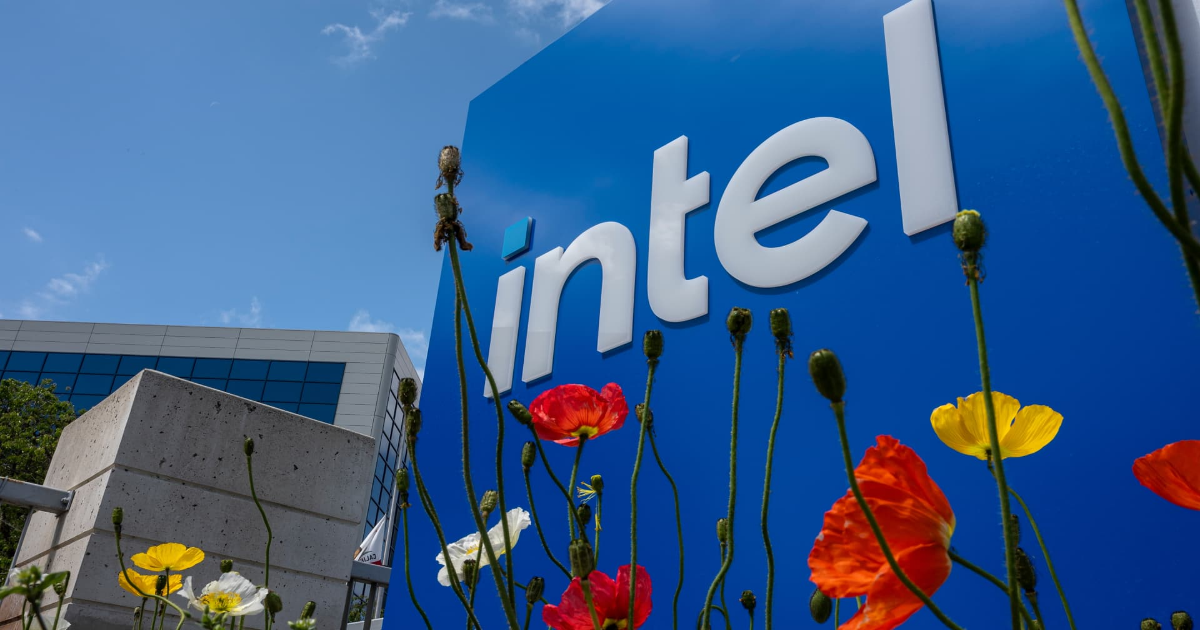The Intel headquarters in Santa Clara, California, US, on Wednesday, April 23, 2025. Intel Corp. is scheduled to release earnings figures on April 24.
Intel CFO David Zinsner said President Donald Trump’s tariffs and retaliation from other countries has increased the likelihood of a recession.
“The very fluid trade policies in the U.S. and beyond, as well as regulatory risks, have increased the chance of an economic slowdown, with the probability of a recession growing,” Zinsner said on the company’s quarterly earnings call on Thursday.
Intel reported better-than-expected first-quarter results, partially because some customers stockpiled chips ahead of tariffs, the company said. However, guidance for revenue and profit was below expectations, pushing the chipmaker’s stock down more than 5% in extended trading.
Intel’s forecast for the current quarter is $11.2 billion to $12.4 billion. Zinsner said the range is “wider than normal” due to uncertainty caused by tariffs.
The company’s outlook underscores how sensitive manufacturers are to trade restrictions, even for companies that are committed to building products in the U.S. While Intel manufactures some of its advanced processors domestically, it also partners with Taiwan Semiconductor Manufacturing Company and Samsung in Korea to manufacture chips, and imports chipmaking machinery from ASML in Europe. The company also needs parts and materials that come from China.
Zinsner said the tariff environment makes it harder for Intel to predict its performance for the quarter and the year, and added that it’s now anticipating that the total market for its chips could shrink, especially if consumers stop buying new computers.
“The biggest risk we see is the impact of a potential pullback in investment and spending, as businesses and consumers react to higher costs and the uncertain economic backdrop,” Zinsner said.
Although Intel has enough production in disparate places around the world to mitigate some of the tariffs, the company “will certainly see costs increase,” he added.
One possibility is that consumers may opt for laptops and other computers based around older-generation chips, which are less expensive, said Michelle Johnston Holthaus, CEO of Intel Products.
“The macroeconomic concerns and tariffs have everybody kind of hedging their bets in what they need to have from an inventory perspective,” Holthaus said on the earnings call.
Beyond tariffs, Intel faces efforts by the U.S. government to require licenses to ship advanced chips for artificial intelligence to countries like China.
Intel’s earnings report on Thursday was its first under CEO Lip-Bu Tan, who was appointed to the job last month. Tan said he planned to cut Intel’s operational and capital expenses in order to make the company more efficient.
WATCH: Intel is dead money in its current strategic form, says Susquehanna Roland




